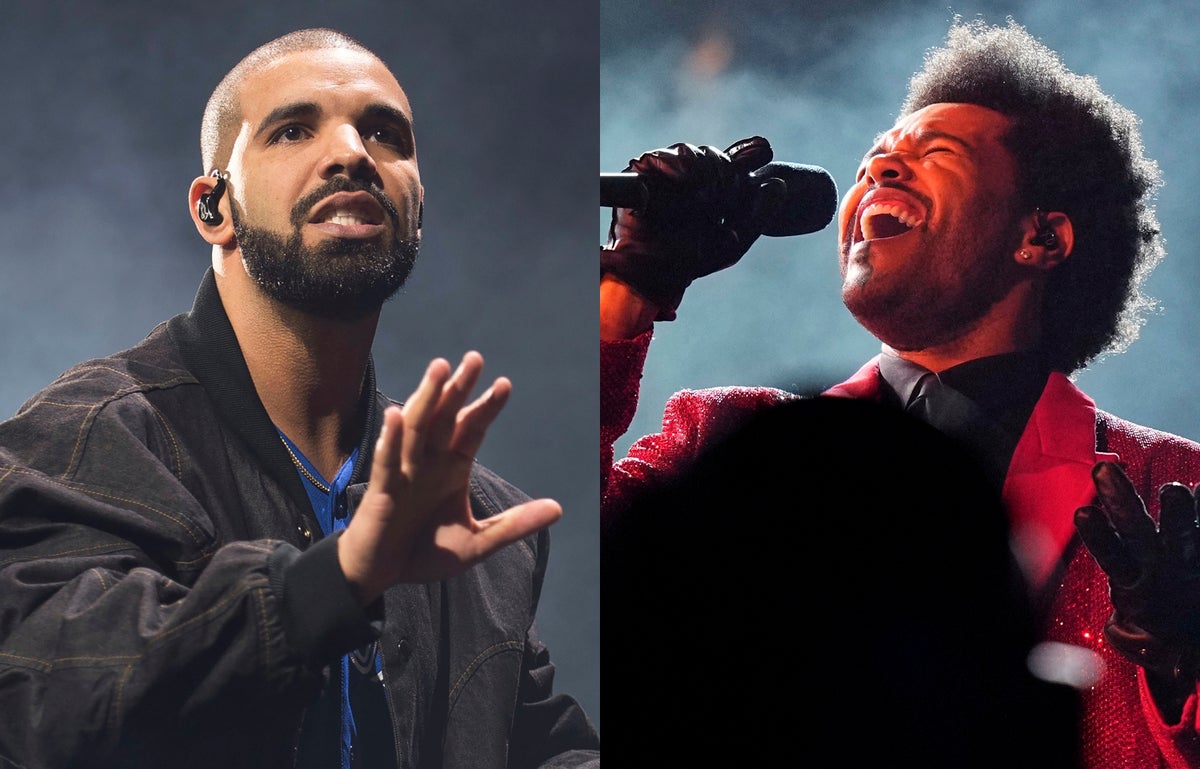
An artificial intelligence-generated song, which mimics the voices of Drake and The Weeknd with terrifying accuracy, has been submitted for Grammy consideration.
Created by the anonymous artist named Ghostwriter, “Heart on My Sleeve” went viral in April. At the time, it left listeners in disbelief over its facsimiles of the real “Search & Rescue” rapper and “Blinding Lights” singer, both of whom had nothing to do with its creation.
Now, the impressive deepfake has been put forward to compete for the music industry’s most prestigious award at next year’s Grammys. Recording Academy CEO Harvey Mason Jr told The New York Times that “it’s absolutely eligible because it was written by a human”.
The track has been submitted for Best Rap Song and Song of the Year, a representative of Ghostwriter confirmed to the Times.
However, just because the song is deemed “creatively” eligible, Grammy rules also require the song to have “general distribution” which means “the broad release of a recording, available nationwide via brick-and-mortar stores, third-party online retailers and/or streaming services”, Mason Jr added.
After its release on YouTube and music streaming sites, “Heart on My Sleeve” was promptly removed after Universal Music sent “takedown notices” to its Digital Streaming Providers (DSPs).
The song was later re-uploaded across the internet and streamers by unofficial third parties.
Ghostwriters’ representatives have said they were “aware of the commercial availability requirement”, according to the Times.
The two-minute song begins with “Drake” rapping about “Coming in with my ex, like Selena [Gomez] to flex/ Bumping Justin Bieber”, before “The Weeknd” jumps in to sing: “Got these pearls on my neck/ Got these girls on my check.”
The track’s internet takeover comes during a time when creative industries, particularly Hollywood and the music industry, are grappling with the powerful and controversial technology.
Earlier this year, the Music Academy released a statement on AI-generated material, saying: “A work that contains no human authorship is not eligible in any Categories.”
In July, however, Mason clarified the Academy’s new ruling on AI, telling Variety: “We’re not going to be giving a nomination or an award to an AI computer or someone who just prompted AI. That’s the distinction that we’re trying to make. It’s the human award highlighting excellence, driven by human creativity.
“What we intended to say was that material using AI can be submitted, but the human portion of the of the composition, or the performance, is the only portion that can be awarded or considered for a Grammy Award,” he reiterated.
“So if an AI modeling system or app built a track – ‘wrote’ lyrics and a melody – that would not be eligible for a composition award. But if a human writes a track and AI is used to voice-model, or create a new voice, or use somebody else’s voice, the performance would not be eligible, but the writing of the track and the lyric or top line would be absolutely eligible for an award.”







